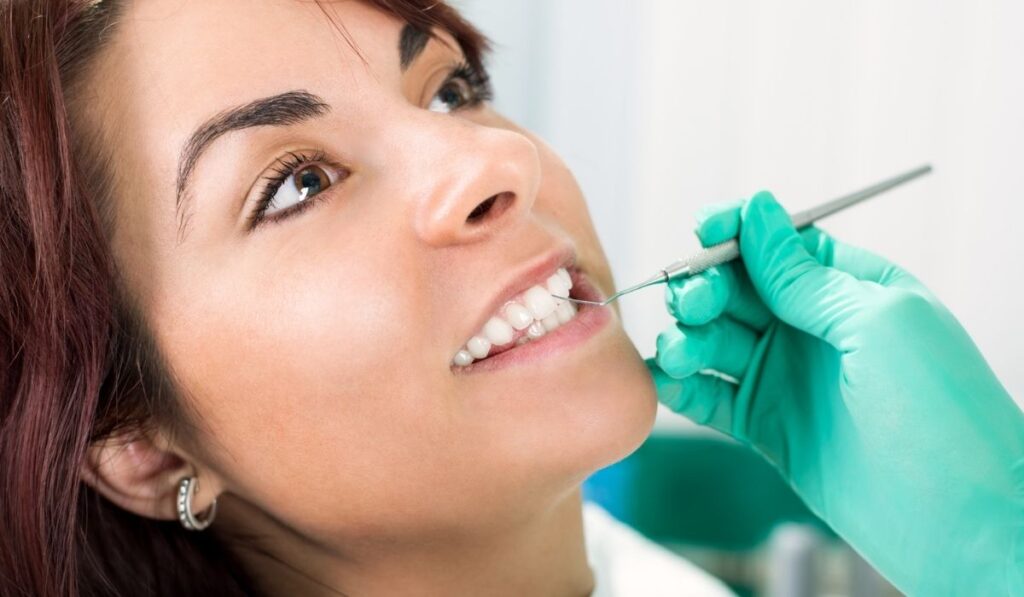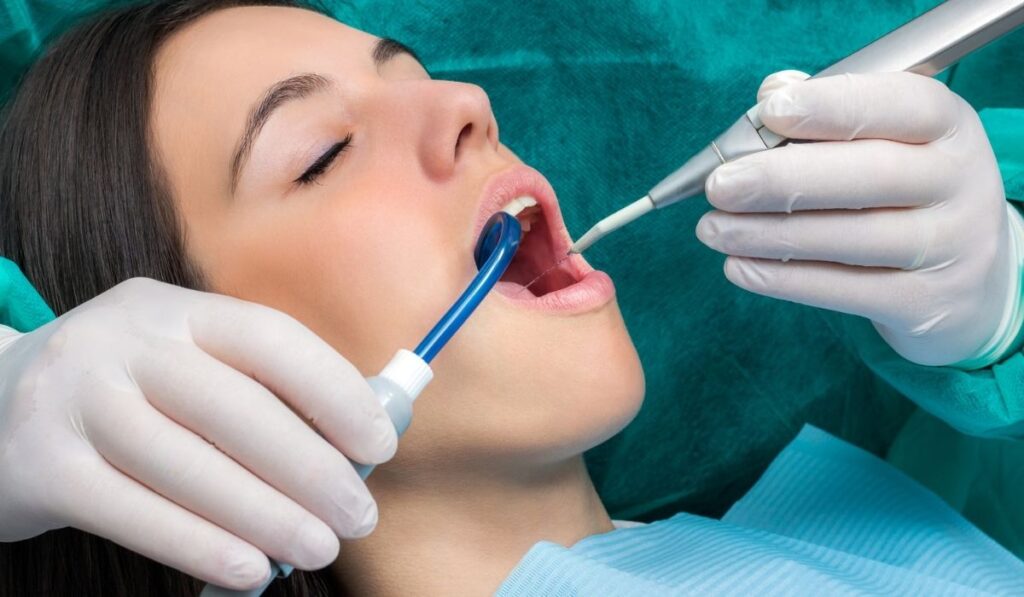Experiencing discomfort after you visit the dentist seems odd, doesn’t it? Shouldn’t your regular cleaning make you feel better than before? It may seem counterintuitive, but patients do often report some pain after seeing their dentist. This is usually nothing to be concerned about.
Pain, discomfort, and sensitivity are common symptoms after a cleaning procedure. These symptoms can be caused by poor oral hygiene, improper brushing techniques, certain dental tools, and your diet. Thankfully, there are multiple ways you can prevent pain during your next checkup.
Don’t be discouraged if you experienced some temporary pain after a dental visit. Many people have found themselves in similar situations. Let’s take a look at why pain may result after a cleaning, how to treat it, and how to prevent it the next time around.
Is It Normal for Teeth to Hurt After a Cleaning?

You’re not alone if you’re experiencing pain, discomfort, or sensitivity after having your teeth cleaned by a dental professional. Discomfort can last up to a week after a dental cleaning. You may also experience soreness, swelling, and bleeding of the gums.
If you’re concerned about your discomfort, be sure to contact your dentist. They may prescribe you an antibiotic or a special mouth rinse to manage any pain and ward off infection.
Why Do My Teeth Hurt After a Deep Cleaning?
Experiencing tooth pain after a deep cleaning may seem odd. However, sensitivity and discomfort are quite common, especially if you have very sensitive teeth.
Sensitive teeth stem from weakened enamel. Your enamel is the protective coating on the top of your teeth; it protects the softer dentin underneath.
Enamel erosion can expose this soft tissue, causing sensitivity and discomfort. Here are some other factors that can make your teeth hurt:
Poor Oral Hygiene
Poor oral hygiene practices are one of the leading causes of sensitive teeth. Harmful bacteria and plaque can build up in your mouth if you’re not brushing and flossing daily. Plaque and bacteria can result in gum recession, cavities, and tooth decay.
Brushing Too Hard / Over-brushing
On the flip side, brushing too hard and over-brushing can also cause tooth sensitivity and discomfort. Many adults apply too much pressure when they brush their teeth. Brushing too forcefully can damage your enamel and gums. Using a hard-bristle toothbrush can negatively impact your oral health as well.
Dental Procedures and Tools
The dental procedures and tools from deep cleaning can cause discomfort if you aren’t practicing good oral hygiene techniques. The pressure from dental instruments and procedures can cause irritation to your gums.
Tissue gets slightly infiltrated in the process of a deep cleaning, so some discomfort for the first 24-48 hours afterward is common. The discomfort should be manageable using over-the-counter pain medication and/or warm salt water rinses.
Diet
Your diet can also affect your oral hygiene and expose you to pain and sensitivity. Foods and beverages that contain high amounts of sugar or acids can cause enamel erosion.
Extreme temperatures can also trigger sensitivity. Be sure to avoid consuming foods with high amounts of acid and sugar immediately after a deep cleaning.
5 Tips For Your Next Teeth Cleaning

Your next deep cleaning doesn’t have to be as painful as the last one. Practicing these tips can help you avoid and prevent tooth sensitivity during your next dental visit.
Take Ibuprofen Before or After Your Next Cleaning
You may have experienced pain during your last visit due to excess tartar, plaque, and harmful bacteria. These factors can cause your gums to swell in response to the cleaning procedures.
Taking a pain reliever like Motrin or Advil (on Amazon) an hour before your next dental cleaning can help prevent discomfort. You can also take another dose around six hours after the appointment.
However, some individuals have experienced some bleeding issues and can’t take these over-the-counter painkillers as a result. Be sure to speak with your dentist and physician to figure out what’s right for you.
Switch to a Different Toothpaste
Switching toothpaste before and after your next dental cleaning can help prevent pain. As you age, your teeth start to wear down from acidic drinks and gum recession. This can expose the inner part of your teeth, resulting in more sensitivity and discomfort.
Try swapping over to a desensitizing toothpaste that contains potassium nitrate, like Sensodyne (on Amazon). Potassium nitrate can help block pain signals from your nerves. However, this can take up to 3 weeks to kick in.
Be sure to speak with your dentist to determine which toothpaste is best for you.
Brush Gently
Stay conscious of your habits If you find yourself brushing too hard. Applying too much pressure can cause your teeth to become more porous, increasing sensitivity in the process. Be sure to use a soft-bristle toothbrush (on Amazon) as well.
Start Using Fluoride
Fluoride is a natural mineral found in various foods, water sources, the air, soil, and rocks. Fluoride has some oral health advantages and can help you avoid pain during your next dental checkup. Here are some of the benefits of fluoride:
- Lowers the acid levels in your mouth
- Strengthens tooth enamel
- Helps rebuild strengthening properties in teeth
- Helps protect your teeth from discomfort
You can find fluoride in various oral hygiene products such as toothpaste, mouthwashes, gels, and foams. Be sure to speak with your dental professional to determine which products are right for you.
Practice Good Oral Hygiene
The most practical way to avoid tooth sensitivity and pain is by sustaining good oral hygiene practice. Be sure to brush and floss your teeth regularly.
This can help ward off discomfort, stains, decay, and other adverse health complications. You should also switch to a soft bristle toothbrush if you haven’t already, as they won’t damage your teeth.
Schedule Your Next Teeth Cleaning
Experiencing discomfort and sensitivity after a deep cleaning is a common symptom. Don’t let these temporary symptoms stop you from scheduling your next cleaning with your dentist.
Visiting your dentist on a regular basis is vital to your oral health and well-being. Be sure to speak with your dentist to determine what treatment plans work for you.


